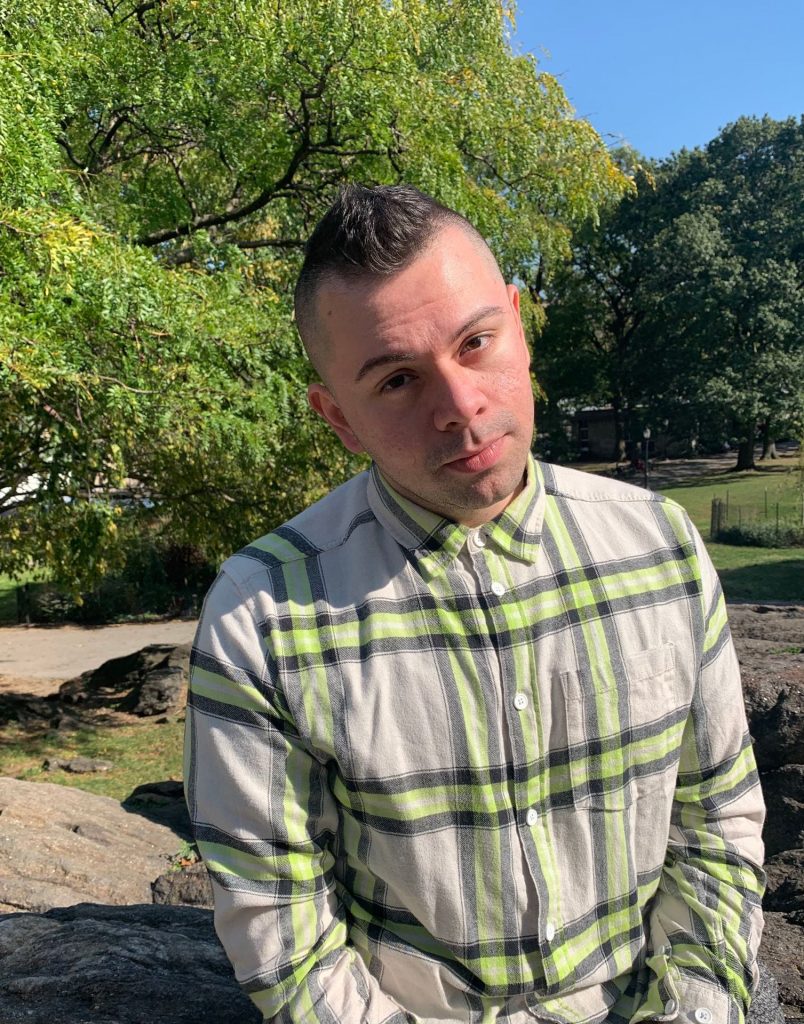
Faculty memoir excavates the trauma of racism.
Pedro’s Theory: Reimagining the Promised Land (Melville House, 2021), a memoir by assistant professor of English Marcos Gonsalez, PhD, begins with a warning: “The world will come between you.” While the next sentence identifies “you” as the narrator and his father, a multiplicity of yous—some representing different versions of Dr. Gonsalez himself, some representing who he might have been—populate the book. One Pedro is divested of his native language at an English-speaking school. Another Pedro disappears in the desert. One Pedro is a cousin, while another is Pedro on Main Street. All are divided by the world they inhabit.
For Dr. Gonsalez, Pedro’s Theory—which received raves from The New York Times, Kirkus, The Advocate, Latino Book Review and other leading publications—is a critical project as much as it is a personal one. In chronicling his coming of age as a queer Latino in white America, he dissects the myth of the American Dream and confronts the damage he suffered growing up in an inhospitable land.

Marcos Gonsalez, PhD
Dr. Gonsalez, who was raised in a rural, predominantly white town in New Jersey by an undocumented Mexican father and Puerto Rican mother, began experiencing symptoms of this fractured identity at a young age. He remembers shying away from other Latinos who worked on farms or lived in trailer parks as a child, having been conditioned to aspire to middle-class life. The “Pedro” device personifies this tension—and transforms a degrading, working-class stereotype into a communal rallying cry.
“I was both similar and dissimilar to the other Latino people in my community,” he said. “When I started planning this book, I was trying to think of what connected me to these people, to my father, to my cousins, even to Latinos I had never even met. We’re all ‘Pedros,’ but we’re also disconnected from each other by barriers like language, sexuality and class. ‘Pedro’ was me reclaiming this stereotype of Latino people placed upon me, emphasizing that we exist and can achieve solidarity despite—or even because of—our differences.”
The book’s seeds were sown during Dr. Gonsalez’s years in graduate school. As part of his dissertation work, he experimented with fusing a variety of forms, including autobiography, literary criticism and cultural analysis, then refracting them through the lenses of queer identity and racial politics.
“I had done so much scholarly inquiry into these topics, and now I wanted to bring all of these lingering strains together and map them onto my own life,” he said. Yet unlike most memoirs, the project required distance rather than proximity.
“If you ask someone to write about their own life, they’ll use the first-person perspective, which makes the writing very close and intimate,” he explained. “I wanted to approach it from a different, more removed angle. How doI defamiliarize myself from myself? That was the only way I felt I could understand how other people were viewing me and how I was viewing myself.”
This practice of narrative distance—known as autotheory, a genre that began with Audre Lorde, Gloria Anzaldúa and other feminists of color—doesn’t operate out of self-judgment, Dr. Gonsalez stressed; it is built on generosity. Pedro’s Theory is part of an intellectual tradition that celebrates the lived experiences of marginalized people and rejects what he refers to as the “myth of Western humanism.”
“For centuries, we’ve had this notion that when academics produce theory, it somehow will be removed from who they are,” he said. Autotheory, however, asks us to think more critically about the structural foundations of our thinking.“What happens when we start identifying whiteness in how we speak, think and write? All of us have to account for the origins of our ideas.”
Pedro’s Theory invites the reader to accompany Dr. Gonsalez as he journeys through the trauma of racism, classism and homophobia, working to unlearn ingrained assumptions and heal old wounds by creating new stories.
“If I don’t practice this descriptive imagining,” he writes, “then there is no way to reach out to that little boy, to know a different narrative than the ones imposed upon him, defining and limiting how he understands himself.”